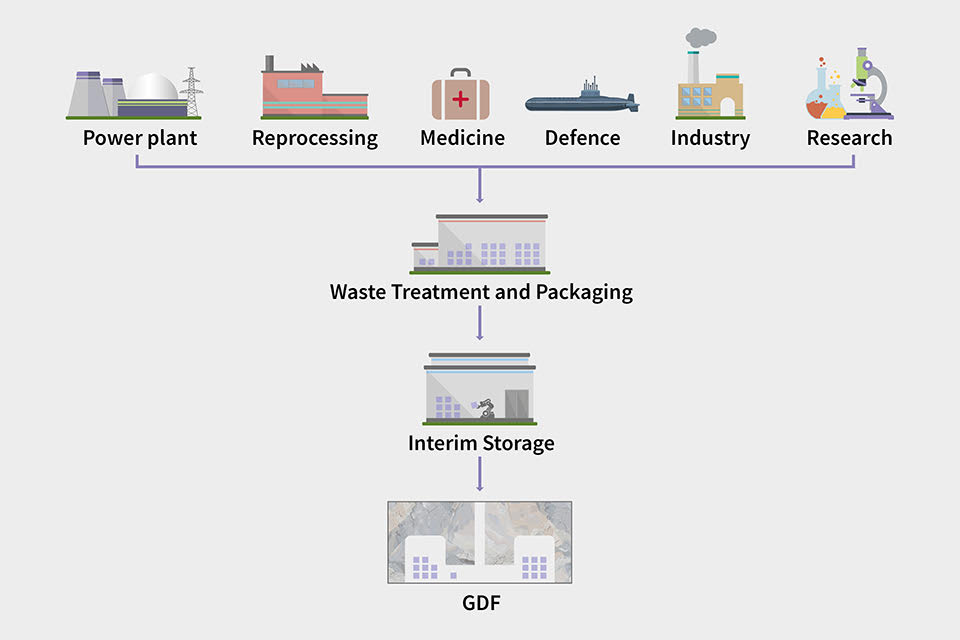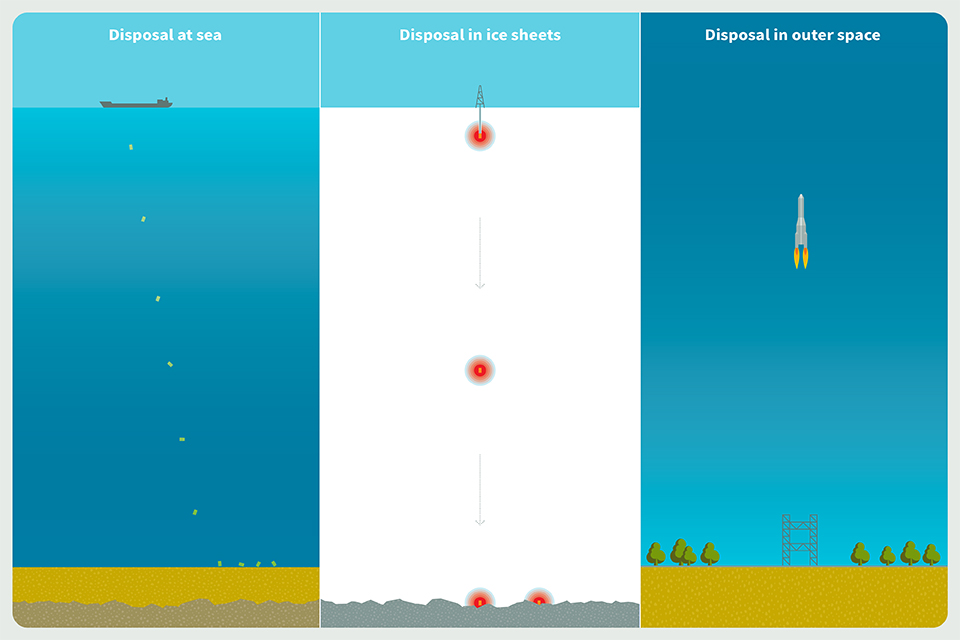In 2006, CoRWM undertook an appraisal of the technical options for managing the UK's radioactive waste, taking into account ethical considerations, an examination of overseas experience and a wide-ranging programme of engagement with both the public and interested parties / stakeholders.
It was concluded that, within the present state of knowledge, the burial underground (200-1000 metres) of radioactive waste in a purpose built facility with no intention to retrieve the waste once the facility is closed, to be the best available approach. In 2018, CoRWM confirmed this position in its Position Paper Why Geological Disposal?.
Such a facility is known as a geological disposal facility (GDF), and there is international consensus that this approach is the safest permanent solution to manage higher activity radioactive waste. This is already the chosen approach in countries including Canada, Finland, France, Sweden and Switzerland. Some of these countries are well on the way to developing their own GDFs.
A GDF involves isolating radioactive waste deep inside a suitable rock volume to ensure that no harmful quantities of radioactivity ever reach the surface environment. This is achieved through the use of multiple barriers that work together to provide protection over hundreds of thousands of years.

Where the radioactive waste that will go into a GDF comes from
Alternatives to geological disposal have been carefully considered and CoRWM continue to keep options under review, for example, they recently published a Position Paper on deep borehole disposal. At present, other alternatives are all either not technically achievable (for example: converting the waste to non-radioactive material), not environmentally safe (for example: disposal at sea or in ice sheets), or too dangerous to implement (for example: firing the waste into space on rockets).

Unsuitable waste disposal methods
The UK government policy for geological disposal is being implemented by Radioactive Waste Management Limited. Learn more about the current UK GDF siting process and the UK government's decision to opt for a GDF.
Robust Interim Storage of Radioactive Waste
CoRWM's second recommendation states that a robust programme of interim storage must play an integral part in the long-term management of the UK's higher activity waste. A continued commitment to the safe and secure management of wastes that is robust against the risk of delay or failure in the repository programme is recommended.
It is also recommended that in determining what reactor decommissioning wastes should be consigned for geological disposal, due regard should be paid to considering other available and publicly acceptable management options.
The Nuclear Decommissioning Authority (NDA) is a non-departmental public body created through the Energy Act 2004, responsible for ensuring that all waste products from nuclear decommissioning, both radioactive and non-radioactive, are safely managed.
Details of the UK's Radioactive Waste can be found in the UK Radioactive Waste Inventory.






